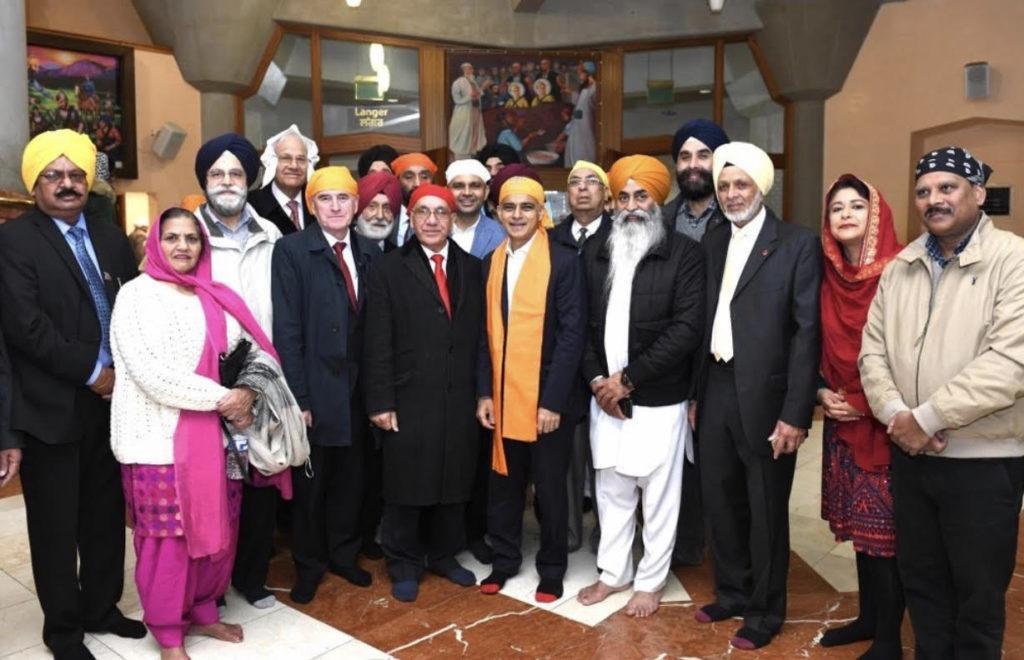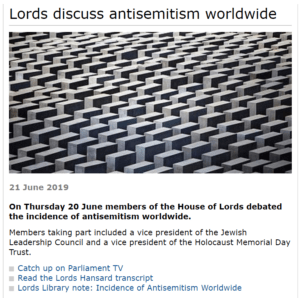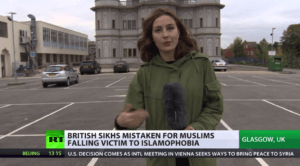
The above image of the Mayor of London being greeted at Sri Guru Singh Sabha Southall with the backdrop of the martyrdom of the Chote Sahibzade (sons of Guru Gobind Singh) could be deemed ‘Islamophobic’ by the APPG on British Muslims definition of Islamophobia – a definition City Hall has adopted.
In a recent House of Lords debate the APPG Islamophobia definition which was previously rejected by the government was again discussed. Our Director Lord Singh, responded:
‘My Lords, emotive definitions such as Islamophobia are simply constraints on freedom of speech. A phobia is a fear, and the best way to combat irrational fear or prejudice suffered by all religions and beliefs is through healthy, open discussion. Will the Minister endorse the commitment given last week by Heather Wheeler, Under-Secretary of State for Foreign and Commonwealth Affairs, to protect all religions and beliefs without fear or favour?’[i]
The Network of Sikh Organisations (NSO) is committed to parity in all areas of policy for all faiths and communities. In a recent debate on anti-Semitism Lord Singh made this very point when he said:
‘My Lords, anti-Semitism is evil and should be combated in every possible way, but will the Minister make it clear that the Government are equally committed to tackling hate crimes against all communities, even those of non-Abrahamic faiths?’[ii]
Despite the pleas for a level playing field, when it comes to resources and policy around hate crime, we’ve consistently stressed in evidence[iii][iv]to the government our concern about the marginalisation of non-Abrahamic faiths. Sikhs have suffered significantly since 9/11 due to the negative reverberations of Islamism, yet we remain an afterthought and are subsumed within the broader ‘Islamophobia’ debate. We’ve previously referred to the government’s failure in addressing this in both Action Against Hate (2016) and Action Against Hate ‘refresh’ (2018) – the government’s four-year hate crime action plan.
Current legislation is enough to protect all faiths from crimes motivated by hatred. We believe the Equalities Act 2010 provides equal protection under law for all racial and religious groups, and those pushing for special definitions like ‘Islamophobia’ an amorphous term – aim to push the boundaries of ‘hate’ to beyond anti-Muslim prejudice, to any discussion of inconvenient aspects of religion and doctrine – which we must all be free to discuss without fear of prosecution or arrest. The same applies to use of the word ‘anti-Semitism’ when it is used to deliberately shut down legitimate discussion about Israel.
Remarkably, we were the only Sikh organisation who realised that under proposals put forward by the APPG, merely discussing aspects of Sikh history (like the martyrdom of Guru Tegh Bahadur) could be deemed ‘Islamophobic’ equated to ‘racism’, and quite possibly criminalised.[v] This in turn would cause immediate problems for our gurdwaras who have pictures of shaheeds or martyrs hanging on their walls. Prominent historians like Tom Holland understood the consequences,[vi] meanwhile some prominent Sikhs ignorantly supported the definition.[vii]
Our Director and Deputy-Director were signatories to an open letter to the then home secretary opposing the APPG definition last year.[viii] However, despite the government rightly rejecting it, it has since been adopted by many councils across the country, with more looking to do so this year. Like others, we remain concerned that this definition could serve as a backdoor blasphemy law, and maintain that ‘anti-Muslim’, like ‘anti-Sikh’ or ‘anti-Hindu’ hate is much clearer language, and something already protected under existing legislation.
[i] https://hansard.parliament.uk/Lords/2020-02-13/debates/D2C6CF82-DDBD-4AB5-949D-C1205E3AF0A4/Islamophobia#contribution-E1E080CF-4115-4F78-A7DB-DB2C4C2B4715
[ii] https://hansard.parliament.uk/Lords/2020-02-11/debates/B70471E8-75CF-414D-805A-A6A1DD1A9081/HateCrimeAnti-Semitism#contribution-E106490B-FC08-4D47-B595-3A2BE62A5909
[iii] http://data.parliament.uk/writtenevidence/committeeevidence.svc/evidencedocument/home-affairs-committee/hate-crime-and-its-violent-consequences/written/77518.html
[iv] http://data.parliament.uk/writtenevidence/committeeevidence.svc/evidencedocument/home-affairs-committee/hate-crime-and-its-violent-consequences/written/45945.html
[v] ‘claims of Muslims spreading Islam by the sword or subjugating minority groups under their rule’ would be deemed ‘Islamophobic’ by Islamophobia Defined.
[vi] https://twitter.com/holland_tom/status/1128756384537956352?lang=en
[vii] https://www.islamophobia-definition.com/
[viii] http://www.civitas.org.uk/content/files/islamophobiaopenletter.pdf


 Our Director Lord Singh of Wimbledon contributed to a debate on anti-Semitism secured by Baroness Berridge in the House of Lords this week.
Our Director Lord Singh of Wimbledon contributed to a debate on anti-Semitism secured by Baroness Berridge in the House of Lords this week.